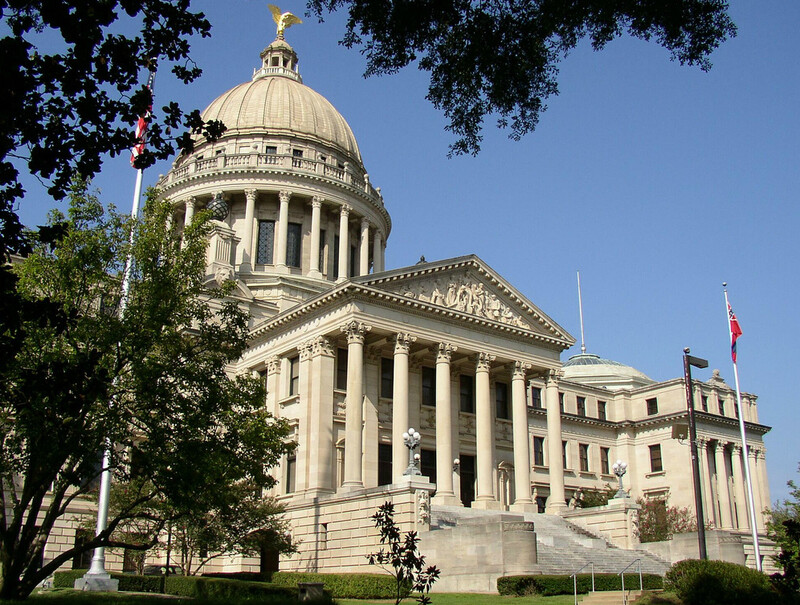Activism and BDS Beat 22 February 2019

Civil rights experts are urging Mississippi lawmakers not to pass a bill that would violate the right to boycott Israel. (Chuck Kelly)
A bill seeking to punish supporters of the boycott, divestment and sanctions (BDS) movement for Palestinian rights passed the Mississippi state House of Representatives earlier this month.
The measure would compel the state to create a blacklist of companies accused of boycotting Israel, and would bar the state’s retirement system, treasury or other government entities from investing in those firms.
If the bill passes the state senate, Mississippi would become the 27th US state to adopt an anti-BDS measure.
The Council on American-Islamic Relations urged its supporters to call Mississippi state senators and demand they reject the bill when it comes for a vote.
Attempts by Mississippi lawmakers to pass a state anti-BDS measure have failed twice in the last two years.
Notably, the US Supreme Court’s 1982 decision that boycotts are a protected form of political expression stems from a Mississippi case over boycotts organized by Black civil rights activists who refused to buy from stores owned by white merchants in the 1960s, in protest of racist and unequal treatment.
The white merchants sued the National Association for the Advancement of Colored people, the civil rights group whose members called the boycott, demanding damages for lost earnings.
Mississippi state courts sided with the white merchants, holding the NAACP liable and declaring the boycott illegal.
But the US Supreme Court overturned these decisions, finding that boycotts called to bring about social and political change enjoy the highest protection of the First Amendment.
The US Supreme Court’s landmark ruling has been cited by civil rights experts and lawyers as US lawmakers continue to pass state anti-BDS measures while similar federal legislation moves through Congress.
Earlier this month, a bill sponsored by US Senator Marco Rubio of Florida – the Combating BDS Act – sailed through the Senate as the legislative body’s first bill of 2019.
The bill would uphold the rights of states and local governments to pass anti-boycott measures, and urges them to pass such laws.
Rubio’s legislation faces mounting opposition in the House, where many say it will probably not pass in its current form.
The advocacy groups Palestine Legal and the American Civil Liberties Union have warned lawmakers that the bill blatantly infringes on free speech.
“The Senate’s first bill this term encourages state and local governments to violate the US Constitution,” said Palestine Legal attorney Zoha Khalili.
The United Nations special rapporteur on free expression condemned recent attempts by US lawmakers to punish supporters of the Israel boycott through Rubio’s legislation.
“The heightened importance to political speech that has long been a part of human rights law requires that we examine restrictions on it with the most serious scrutiny,” stated David Kaye, an independent expert appointed by the UN.
“Economic penalties present individuals and entities with an untenable choice: stay silent and avoid BDS advocacy, or expect serious negative economic impact,” Kaye added.
Federal courts have blocked state anti-BDS laws in Arizona and Kansas, citing First Amendment violations. Other lawsuits are pending in Texas and Maryland.“Wrong side of the Constitution”
Meanwhile, another bill seeking to punish supporters of the Israel boycott has stalled in the federal legislature.
The Israel Anti-Boycott Act, sponsored by Democratic Senator Ben Cardin of Maryland, was inserted into a major spending bill in December and could have been passed without a standard debate procedure.
Following the month-long government shutdown that started in December, a spending bill was finally passed last week. Cardin’s anti-BDS legislation was not included, meaning it would have to be re-introduced sometime during the current session.
The measure would impose heavy fines and even prison sentences on companies or their personnel who participate in the boycott.
Democratic 2020 presidential hopeful and Vermont Senator Bernie Sanders, along with California Senator Dianne Feinstein, publicly opposed the inclusion of the Israel Anti-Boycott Act in the spending package in December, citing the threat to free speech.
The ACLU recently urged lawmakers to reject the bill not just on First Amendment grounds, but because it could affect international policies regarding Israel’s illegal settlements.
The civil rights group asserts that Cardin’s bill “prohibits furnishing information to the United Nations Human Rights Council for the establishment of a database of entities that operate” inside the occupied West Bank, including East Jerusalem, Gaza and the Syrian Golan Heights.
The provision, the ACLU adds, “is squarely directed” at the Human Rights Council’s resolution urging companies to avoid doing business inside Israeli settlement colonies and calling for a database of companies that do so.
Israel and the US have so far successfully pressured the UN to indefinitely postpone publishing the list.
“Should Congress criminalize voluntary participation in UN-led boycotts of Israel and other countries, it will be on the wrong side of the Constitution,” the ACLU warns.





